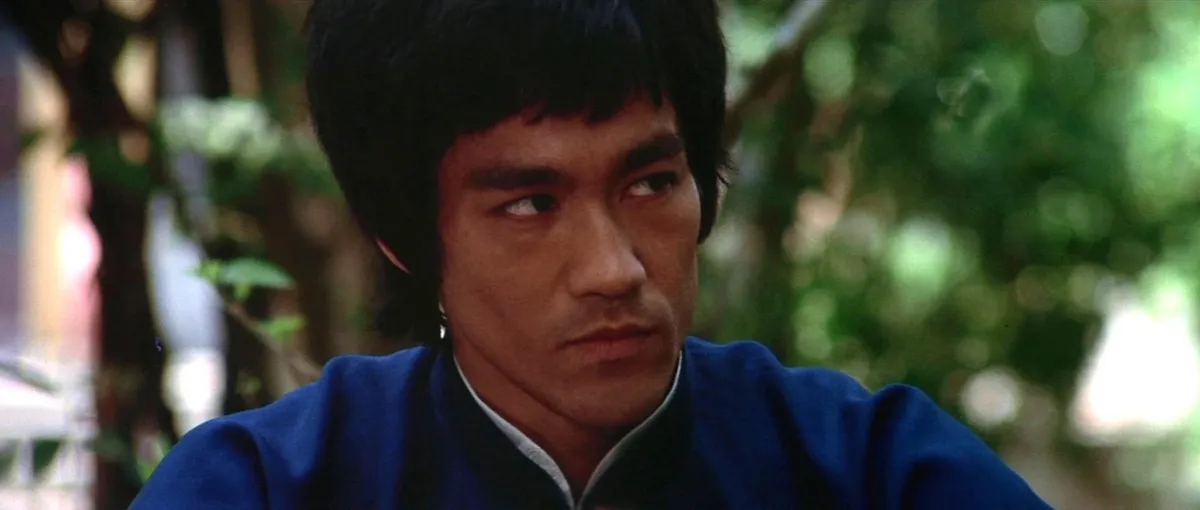The conversation about Bruce Lee’s depiction in Quentin Tarantino’s acclaimed, but discourse-creating 9th film, Once Upon a Time in Hollywood, continues. More than anything, the movie has led to discussion of nostalgia, Asian and Asian-American representation, and what exactly was gained by having a scene portraying Bruce Lee in a bad light in the first place.
Tarantino has doubled down on the depiction, saying that Lee was “kind of an arrogant guy” in response to Lee’s daughter complaining about the scene. Throwing his hat into the conversation via a piece in The Hollywood Reporter is a man with many identifiers, “friend of Bruce Lee” being among them: Kareem Abdul-Jabbar.
Kareem Abdul-Jabbar starred with Bruce Lee in the 1972 film Game of Death, which is sadly incomplete due to Lee having died during production, but Lee was also Abdul-Jabbar’s mentor and friend. Abdul-Jabbar makes it clear that he does consider Tarantino one of his favorite filmmakers because he is “so bold, uncompromising and unpredictable.” In the piece, the actor/athlete/writer continues, “I attend each Tarantino film as if it were an event, knowing that his distillation of the ’60s and ’70s action movies will be much more entertaining than a simple homage. That’s what makes the Bruce Lee scenes so disappointing, not so much on a factual basis, but as a lapse of cultural awareness.”
Abdul-Jabbar points out that Tarantino has every artistic right to depict Lee in the way he sees fit, but says the portrayal was done in “a sloppy and somewhat racist way.” He brings up that one of Lee’s big issues in Hollywood was that he was frustrated with the stereotypical representation of Asians in film and TV, where they were only allowed to be villains or servants. Asian men had their sexuality and masculinity removed, and Asian women were hyper-sexualized and fetishized.
“That’s why it disturbs me that Tarantino chose to portray Bruce in such a one-dimensional way,” Abdul-Jabbar says. “The John Wayne machismo attitude of Cliff (Brad Pitt), an aging stuntman who defeats the arrogant, uppity Chinese guy harks back to the very stereotypes Bruce was trying to dismantle.”
This is made all the more troubling because, other than a few quick clips of Lee helping train Sharon Tate, this is the only major scene we get with Lee, not to mention he is the only notable “character” of color in the entire movie. Even if this scene is an unrealistic memory/flashback from Cliff’s perspective, it still portrays Lee as a prop, and for a movie that is so nostalgic and in love with a time period that was rampant with racism, sexism, and homophobia, it doesn’t make anything better.
I think I need to start off by saying that no director/screenwriter has probably influenced my writing more than Quentin Tarantino. The reason I’m good at writing dialogue now, in addition to having read so many comics/manga growing up, is also the diet of Quentin Tarantino I had as a kid. Even though I know it’s an unpopular opinion, I remember my mom taking me to go see Death Proof on my 15th birthday and just knowing I wanted to write characters that felt as dynamic as the ones he created.
As I’ve listened to other film lovers discuss the movie, I respect and understand those who love it. I enjoy film and film history, but I’m not a “stan” for Hollywood. I think of the studio system, the corruption, the fact that Judy Garland lost to Grace Kelly, and all the injustices surrounding it, and I find it fascinating and love the stars and art, but the institution is just not it for me. So, when I hear people asking for “nuance” in talking about this film, I hear very little conversation about race or the racial politics of the time.
They go with the movie because it’s Tarantino, and because it is, on many levels, a “good” movie. But, I think people need to understand that some of us don’t have nostalgia for a time period when most of us were barely allowed to be full people. Marginalized communities are still underrepresented in Hollywood—LGBT communities, female directors … We can appreciate the story that Tarantino wants to tell, but some of us just simply don’t have a connection to a “Hollywood of old” because we were never a part of it, not in a way that was always positive and affirming.
So when we want to have “nuanced” conversations about Once, just know that many of us are still fighting the battles that Lee is fighting, and we don’t feel any need to support or care about films that do not at the very least try to care about us.
I will end with Abdul-Jabbar’s conclusion in his Hollywood Reporter piece.
“I was in public with Bruce several times when some random jerk would loudly challenge Bruce to a fight. He always politely declined and moved on. First rule of Bruce’s fight club was don’t fight — unless there is no other option. He felt no need to prove himself. He knew who he was and that the real fight wasn’t on the mat, it was on the screen in creating opportunities for Asians to be seen as more than grinning stereotypes. Unfortunately, Once Upon a Time in Hollywood prefers the good old ways.”
(via The Hollywood Reporter, image: Warner Bros.)
Want more stories like this? Become a subscriber and support the site!
—The Mary Sue has a strict comment policy that forbids, but is not limited to, personal insults toward anyone, hate speech, and trolling.—










Published: Aug 16, 2019 03:36 pm